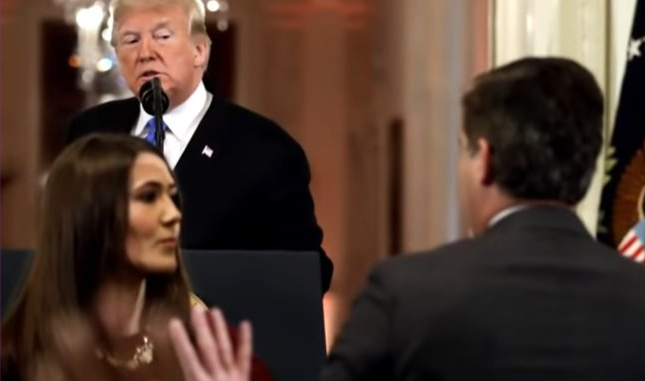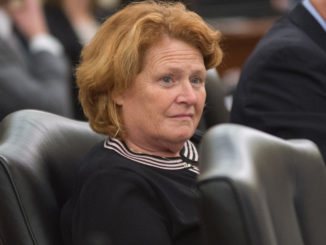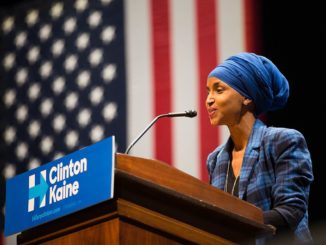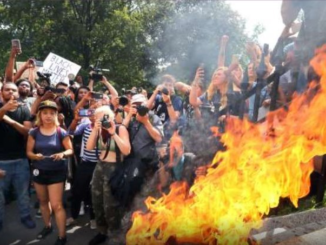
By now you’ve likely heard of or followed the situation regarding CNN’s Jim Acosta having his press pass revoked by the White House. The decision to do so was made as a result of a confrontation Acosta had with President Trump during a press conference on November 7th. Many view Acosta as a hard-nosed journalist. Others see him as a jackass— anything but a true journalist.
As someone who has had my own struggles with President Trump from time to time, I have no problem admitting that I’m 100% with him on this one. Jim Acosta was completely out of line. And this wasn’t the first time. He has a history of being blatantly obnoxious to White House officials. If you’d like to see just a few examples, take a look at this video.
Despite his claims, Acosta wasn’t simply asking tough questions in his November 7th exchange with President Trump. He was outright arguing with him. When the President told him to put the mic down, a female intern attempted to take the mic and Acosta not only refused to give it up by pulling back from the intern, but you can clearly see his left hand come down towards her arm as a means of preventing her from doing so. It wasn’t slapping — as some reported it to be — but it certainly wasn’t appropriate either. In my opinion, that act alone was reason enough to give him the boot.
Obviously unhappy with the revocation, CNN sued as a means of having the pass reinstated— and they won. The reasoning? In Judge Timothy J. Kelly’s opinion, the White House had violated Acosta’s Fifth Amendment right to Due Process. It’s interesting to note that their argument was based, in part, upon a 1977 case filed in the U.S. Court of Appeals, for the District of Columbia Circuit, known as Sherrill v. Knight in which the case finding said that the “Fifth Amendment’s due process clause protects a reporter’s First Amendment liberty interest in a White House press pass”.
I believe the findings in Sherrill v. Knight to be troublesome as well. But having said that, it was quite different from Acosta’s situation. You can read the entirety of the case for yourself, but it’s worth noting that Robert Sherrill’s press pass was denied in 1966 and then again in 1972 without explanation— of which the court was critical. As a side note, it came out later that the reason for the denial was because he had been “arrested and fined for physical assault in the State of Florida”. So, the Secret Service had recommended that it be denied.
In the U.S. Court of Appeals 1977 decision, we also find this:
“We agree with the District Court that both first and fifth amendment concerns are heavily implicated in this case. We conclude, however, that neither of these concerns requires the articulation of detailed criteria upon which the granting or denial of White House press passes is to be based. We further conclude that notice, opportunity to rebut, and a written decision are required because the denial of a pass potentially infringes upon first amendment guarantees. Such impairment of this interest cannot be permitted to occur in the absence of adequate procedural due process.” (Emphasis Added)
As you can see, even by the standard of the 1977 decision, the White House is not obligated to articulate “detailed criteria” for granting or denying a press pass, but yet the court expects them to provide “notice, opportunity to rebut, and a written decision”.
So, what are my concerns with all of this?
First, I’m concerned with the view that a First Amendment right to freedom of the press somehow guarantees people access to the White House. In my mind, it doesn’t. For now, that’s Trump’s house. And he should get to determine who comes and who goes— even if some people don’t like it. If he chooses to do an interview with Fox News’ Sean Hannity, is he then required to invite folks from all the other networks too? Of course not. Even Sherrill v. Knight rejects that:
“It would certainly be unreasonable to suggest that because the President allows interviews with some bona fide journalists, he must give this opportunity to all.”
Can you see the double standard? Why should it be any different for a press conference? And why shouldn’t he get to determine who stays and who goes in a press conference? Simply because he didn’t provide “notice, an opportunity to rebut, and a written decision” to those who get the boot? That’s almost laughable. And it’s really quite inconsistent if you think about it.
If the White House can be compelled to grant Acosta a press pass, can they be compelled to answer his questions? I think the answer to that is obviously “No”. And if they’re under no obligation to answer his questions, then what is to be gained by Acosta attending at all? He could just as well view it from home and then write whatever he feels like writing about it— that’s freedom of the press.
Second, who qualifies as a journalist? According to the decision in Sherrill v. Knight, “These press facilities are perceived as being open to all bona fide Washington-based journalists.” Who gets to determine who’s “bona fide” and who’s not? What if Trump doesn’t think Acosta is a bona fide journalist? And why just “Washington-based journalists”? If we’re going by the court’s standards, how is that not a violation of First Amendment rights for “bona fide” journalists outside of Washington? What about equal protection guaranteed by the Fourteenth Amendment?
It seems the standards being set by the courts are producing more questions than answers.
You see, while the mainstream media points out that Judge Kelly didn’t rule on the First Amendment aspect of this case, in essence he did. Because without Judge Kelly believing that Acosta had a First Amendment right in this situation, there can’t be a violation of his Fifth Amendment right to Due Process.
Like it or not, the White House is Trump’s house. And he shouldn’t be compelled to let anyone in that he doesn’t want there— no president should. Jim Acosta is entitled to nothing in terms of access, questions, and answers. He may report whatever he wants to report, about whomever he wants to report about in the White House, but he doesn’t have a Constitutional right to be in the White House. Those are two entirely different things. And that’s why I believe Judge Kelly got this wrong.
Another interesting tid-bit is that the 1977 decision says the:
“… first amendment claim is not premised upon the assertion that the White House must open its doors to the press, conduct press conferences, or operate press facilities.”
If Jim Acosta has become the standard by which the media wants to associate themselves, then is this where we’re actually headed— to having no press conferences at all? According to President Trump, it’s a possibility. Not only is he willing to “throw [Acosta] out” if he “misbehaves”, but he’s willing to walk away from press conferences too.
I can’t say that I’d blame him.
Sources:
- https://www.youtube.com/watch?v=qmUAb4Ot_Iw
- https://dailycaller.com/2018/11/14/acosta-white-house-press-pass/
- https://www.rcfp.org/sites/default/files/2018-11-13-CNN-v-Trump.pdf
- https://www.newsy.com/stories/cnn-sues-trump-sanders-over-jim-acosta-s-revoked-press-pass/
- https://globalnews.ca/news/4669633/cnn-vs-trump-preliminary-ruling-jim-acosta/
- https://www.law.cornell.edu/constitution/fifth_amendment
- https://openjurist.org/569/f2d/124/sherrill-v-h-knight
- https://www.law.cornell.edu/constitution/first_amendment
- https://www.youtube.com/watch?v=e_nK-Ndo6ZU





